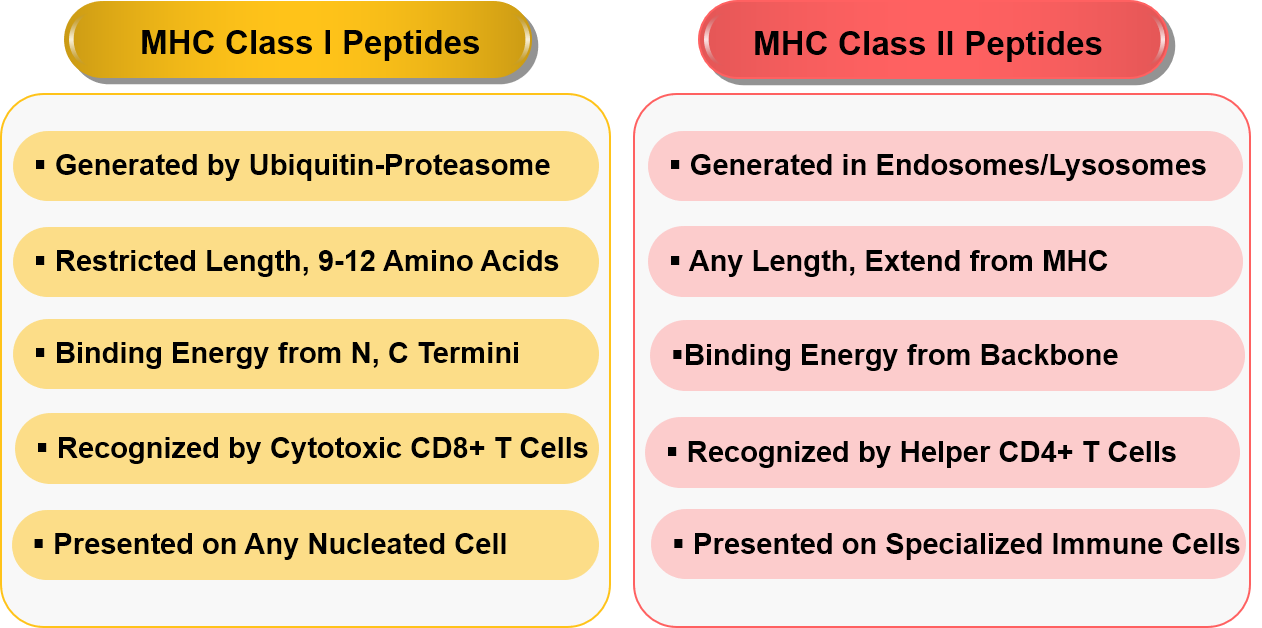Fractionation & Sequence Analysis of Isolated MHC Peptide
The development of vaccines and immunotherapies should benefit from analyses of peptide sequences originating from tumor-associated antigens (TAAs) that are presented on MHC I and MHC II molecules on antigen-presenting cells. To provide more accurate and high throughput analysis services, Creative Biolabs has made great efforts to develop diverse methods to fractionate and analyze MHC-associated peptides. Our customer-orientated services are customized with specific criteria during the process to ensure robustness and reproducibility.
Introduction of MHC Peptides
MHC peptides are one type of peptides that are presented to the immune system by MHC molecules and determine the fate of important biological outcomes, such as thymic selection, immune responses to pathogens, and reactivity to self-antigens. Usually, MHC peptides are referred to as the immunopeptidome that is a critical component of the immune system. For translational science, an in-depth understanding of the immunopeptidome can directly fuel and guide the development of next-generation vaccines and immunotherapies against autoimmunity, infectious diseases, and cancers. MHC peptides can be divided into two classes: MHC class I and class II peptides.
 Fig.1 Comparison of MHC class I and class II peptides.
Fig.1 Comparison of MHC class I and class II peptides.
Fractionation and Analysis of MHC Peptides
The analysis of MHC-associated peptides usually starts with the immunoaffinity capture of naturally processed MHC-peptide complexes, which is also a process of targeted protein enrichment. Subsequently, the associated peptides dissociate from the MHC molecules upon acid denaturation. Finally, these peptide cargoes are extracted and separated into fractions by High-Performance Liquid Chromatography (HPLC) and are analyzed by Mass Spectrometer (MS). To sequence a maximum number of MHC peptides from one isolation, the peptides can be directly transferred to an MS from the HPLC system for fragmentation analyses. Using this HPLC-MS/MS method, several thousand peptides can be identified from a wide variety of cell types, including cancerous and infected cells, as well as those from tissues.
Characterizing and analysis of MHC peptides are paramount to understanding the immunogenicity of TAAs and generating powerful tools for cancer immunosurveillance and immunotherapies. Equipped with the very latest instrumentation and professional team, Creative Biolabs is passionate about the fractionation and analysis of MHC peptides with the highest quality, accuracy, and precision, and a fast turnaround to meet deadlines.
We strongly believe that the technological advances we make should be accessible to every customer. If you are interested in our services, please feel free to contact us.
For Research Use Only.
